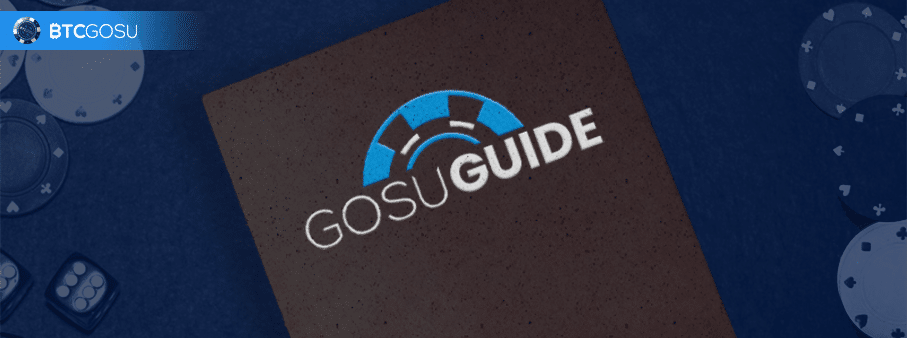The Role of Probability in Casino Gaming
Probability is the mathematical backbone of real money gambling, governing the likelihood of specific outcomes and shaping the balance between chance, skill, and profit. At its core, probability quantifies the odds of events occurring in casino games, whether it’s landing a jackpot on a slot machine, drawing a winning poker hand, or predicting the outcome of crash games.
As such, it’s crucial for any player who wants to build their prospects of winning to understand how probability works and how it can affect the use of various casino game strategies. Let’s see how we can use this understanding to promote our winning chances.
Unlike variance and volatility, which describe how results fluctuate, probability defines what those results are likely to be. This distinction is critical for players seeking to determine game fairness and for operators designing systems that balance risk and reward.
How does probability show its hand in different games?
Probability manifests in various ways across different casino games. In games of pure chance (e.g., slots, roulette), outcomes rely entirely on random number generators (RNGs) or physical mechanics (e.g., a roulette wheel). For example, the probability of hitting a single number in European roulette is 1/37 (2.7%), while a slot machine’s payout probability is pre-programmed into its RTP.
In skill-based games (e.g., poker, blackjack), probability intertwines with player decisions. A blackjack player using perfect strategy reduces the house edge to approximately 0.5%, effectively altering their probability of winning each hand. Meanwhile, poker players calculate “pot odds” (probability of winning vs. bet cost) to make strategic decisions while combining mathematics with psychology.
Let’s see how probabilities play out across some different game types.
Roulette Wheel Probability
In roulette, the probability of a specific outcome depends on the number of pockets on the wheel and the type of bet being placed. The two common types of bets are inside bets and outside bets. Inside bets have a lower probability of winning but offer higher payouts, while outside bets have higher chances of winning but offer lower payouts.
The probability of a particular outcome can be calculated using the formula: P (outcome) = number of pockets with that outcome / total number of pockets. While understanding the probabilities in roulette can help make informed betting decisions, the game is still ultimately based on luck and chance, and no specific roulette strategies or betting systems can guarantee a win.
For example, let us say you are playing American roulette and you want to know the probability of the ball landing on red. There are 18 red pockets on the wheel, so the number of pockets with that outcome is 18. The total number of pockets on the wheel is 38, so the probability of the ball landing on red is 18/38 or approximately 0.4737.
Similarly, if you want to know the probability of the ball landing on a specific number, such as 7, there is only one pocket with that outcome. Therefore, the probability of the ball landing on 7 is 1/38 or approximately 0.0263.
Blackjack Probability
In blackjack, probabilities play a crucial role in decision-making. The likelihood of a particular outcome depends on the number of decks in play and the cards that have already been dealt. One of the most critical probabilities in blackjack is the likelihood of busting or going over 21. This probability depends on the player’s starting hand and the dealer’s upcard. By understanding this probability, players can decide whether to hit or stand, maximizing their chances of winning.
Another important probability in blackjack is that of getting a natural blackjack, which is an Ace and a 10-value card. This probability depends on the number of decks in play, as well as the number of Aces and 10-value cards that have already been dealt. Players who understand the likelihood of getting a natural blackjack can adjust their blackjack strategies accordingly.
Understanding the probabilities of different outcomes in blackjack can also help players make more informed decisions about doubling down or splitting pairs. For example, if a player has a pair of Aces, they may be more likely to split them if the dealer’s upcard is weak, as there is a higher probability of getting two strong hands instead of one.
Probabilities in Video Poker and Slots
In video poker, the probability of winning depends on the paytable of the machine and the number of cards in play. The paytable indicates the payouts for each winning hand, and understanding it is crucial for making informed decisions about which cards to keep and which ones to discard. Different paytables offer different expected returns, and players should aim for machines with the highest expected returns to increase their chances of winning.
Effective video slots strategies are few and far between – the probability of winning depends on the number of reels, symbols on each reel, and the payout table of the machine. Each slot machine has a unique payout table that outlines the payouts for each winning combination of symbols. Understanding the payout table is crucial for calculating the expected return and making informed decisions about your bets. Some machines offer higher payouts for certain winning combinations, while others may offer a higher payout percentage overall.
Card Games Probability
Probability is a fundamental concept in card games, where it plays a crucial role in determining the likelihood of specific outcomes and making informed decisions about strategy and betting.
One of the most basic concepts in probability for card games is calculating the probability of drawing a certain card from a deck. For instance, in poker, if you need a particular card to complete your hand, you can calculate the probability of drawing that card by dividing the number of cards remaining in the deck that will help you by the total number of cards remaining in the deck. The calculated probability can then guide your decision-making process in terms of whether to bet, raise or fold.
How to Calculate the Probability of an Event
To calculate the probability of an event, you need to know two crucial pieces of information; the number of outcomes that can result in the event occurring and the total number of possible outcomes.
For example, let us say you are rolling a six-sided die and you want to know the probability of rolling a 3. There is only one outcome that results in rolling a 3, so the number of outcomes that can result in the event occurring is 1. The total number of possible outcomes when rolling a six-sided die is 6, so the probability of rolling a 3 is 1/6 or approximately 0.1667.
In general, the probability of an event can be calculated using the following formula:
P (event) = number of outcomes that result in the event occurring divided by the total number of possible outcomes
In flipping a coin, the formula to use is:
P (heads) = 1 / 2
It is important to note that calculating probabilities can become more complex for events with multiple outcomes or for events that depend on other events. In these cases, you may need to use more advanced probability theory, such as conditional probability or Bayes’ theorem.
What do players need to know about probability?
For players, understanding probability is key to informed decision-making and expectation management.
Knowing that a slot machine has a 1 in 5,000,000 chance of hitting a progressive jackpot tempers unrealistic hopes, while recognizing a 21% probability of being dealt a winning starting hand in Texas Holdem guides betting tactics.
Probability also underpins bankroll strategies: a player aware of the 49.3% chance of winning a red/black roulette bet might limit bets to avoid the house edge’s long-term grind.
How do casino operators use probability?
For operators, probability is a tool for profit engineering. By setting game rules or tweaking RNG distributions, they influence risk-reward ratios to align with business goals while complying with regulations (e.g., certified RNG fairness).
However, probability is often misunderstood.
Which elements can be misunderstood or mishandled?
The gambler’s fallacy (believing past outcomes influence future probabilities) leads to irrational bets. Similarly, believing that theoretical probability (e.g., 96% RTP) gives results meeting with short-term reality causes frustration when results defy expectations.
How probability is different from odds
While the terms “odds” and “probability” are often used interchangeably, they have slightly different meanings in the context of gambling.
Probability, as discussed in the beginning, refers to the likelihood of a particular event occurring. It is usually expressed as a percentage or fraction, ranging from 0 (impossible) to 1 (certain). For example, the probability of flipping a coin and it landing heads up is 0.5, or 50%.
Odds, on the other hand, represent the ratio of the likelihood of an event occurring to the likelihood of it not occurring. They are usually expressed as a ratio, such as 2:1 or 3:2. For example, if the odds of winning a particular bet are 3:1, this means that for every four bets placed, three will be losers and one will be a winner.
While odds and probability are related, they are not the same thing. Probability represents the chance of an event occurring, while odds represent the payoff if that event occurs. For example, if the probability of rolling a six on a six-sided die is 1/6, the odds of rolling a six are 5:1 (since there are five ways to not roll a six and one way to roll a six).
How to practice using gambling probability
Improving one’s gambling probability skills is a valuable pursuit for both casual and professional gamblers. There are many ways to practice and refine these skills, ranging from traditional methods like reading books on probability theory and practicing mathematical calculations to more modern approaches like using probability software and participating in online forums and discussion groups.
Many casinos and online gambling sites also offer free or low-stakes games that allow players to test their skills without risking significant amounts of money.
Engaging in these activities can help players develop a better understanding of the odds and probabilities involved in various forms of gambling, which can increase their chances of success and minimize losses in the long run.
Play free online casino games
Many online casinos offer free versions of their games that allow you to practice without risking any money. Similarly, taking advantage of no deposit casino bonuses is another way to play with no risk.
Playing free games is a great way to get familiar with the probabilities involved and to test out different betting strategies.
Use probability calculators
There are many online tools available that can help you calculate the probabilities of different outcomes in various gambling games. These calculators can be a great way to test your understanding of probability theory and to check your calculations.
Study gambling probability books and resources
There are many books and resources available that can teach you about gambling probabilities and how to calculate them. These can be a great way to deepen your understanding of the subject and to develop your skills.
Join gambling forums and communities
There are many online forums and communities dedicated to gambling where you can discuss probability theory with other gamblers and learn from their experiences.
Whatever options you choose to pursue, do note that the key to practicing gambling probability is to approach it with a scientific mindset. Use data, logic, and probability theory to make informed decisions and to develop your strategies. By doing so, you can increase your chances of winning and minimize your losses.
What is conditional probability?
Conditional probability theory is a field of mathematics that deals with the likelihood of an event A happening, given that another event B has occurred. This means calculating the probability of A under the condition that B has already occurred, and it is represented by the notation P (A|B).
To compute conditional probability, one needs to determine both the probability of both events A and B occurring together (joint probability) and the probability of B occurring alone.
Conditional probability theory has a variety of practical applications in real-world scenarios, such as weather forecasting, stock market analysis, and sports betting, among others.
Bayes’ theorem
Bayes’ theorem is a statistical tool used to determine the probability of an event based on the knowledge of related events. The formula for Bayes’ theorem involves calculating the probability of event A, given event B, in terms of the probability of event B, given event A, multiplied by the prior probability of event A, divided by the prior probability of event B.
This theorem is named after Thomas Bayes, an 18th-century English statistician, and it has a wide range of practical applications in various fields, such as artificial intelligence, biology, and physics, among others.
Bayes’ theorem is particularly useful when working with uncertain or incomplete information, as it allows us to update our beliefs as new information becomes available.
Summary
Ultimately, probability is the silent partner of casino gambling’s fairness and excitement. It:
- Ensures transparency (via audited RNGs).
- Informs strategy.
- Maintains the delicate equilibrium between player enjoyment and operator profitability.
By demystifying probability through the use of tools like odds calculators, game tutorials, or regulatory disclosures, the industry gives players the basis on which they can engage with casino games wisely, transforming blind luck into calculated game participation.
Ready to practice using probabilities in your casino gaming? You’ll need some trustworthy, high-performing platforms, and this list is a good place to start:
Best Bitcoin casinos for practicing with probabilities
120%Deposit Bonus + 100 Free Spins
BC.Game is a crypto casino featuring provably fair games, slots, live games and an attractive VIP program for loyal players.
Up to 15% Rakebackfor 7 days
Gamdom has a vast game selection and is probably one of the best adresses for gamers.
22% Daily Cashback
Whale.io Casino is a 2024 crypto gambling site that has multiple unique features and an amazing sportsbook.
Get loyalty Rakeback & Weekly Raffles here
Roobet is a 2018 Bitcoin Casino & Sportsbook with a huge game selection, including thousands of slots as well as provably fair games.














Login
Register